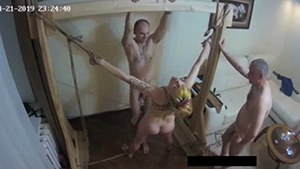Voyauer House TV: Navigating the Uncharted Realms of Digital Voyeurism with Voyauer House
In the age of digital connectedness, Voyauer House TV, also known as Voyauer House, has emerged as a groundbreaking platform that blurs the lines between public and private life. This unique form of online entertainment invites users to peer into the daily lives of individuals through live streaming from various residences, creating an unfiltered and immersive experience. This article will explore the origins of Voyauer House TV, the motivations behind its participants, ethical considerations surrounding the platform, the legal landscape it traverses, and the broader societal implications on privacy in the digital age.
Unraveling Voyauer House TV:
Voyauer House TV, or Voyeur House, is more than just a platform; it is a gateway into the intimate moments of people's lives. The platform's name itself, combining "voyeur" with "house" and the ubiquitous "TV," encapsulates the essence of this phenomenon – an unscripted reality show that takes place within the very homes of its participants. Voyeur House TV has redefined the traditional boundaries of reality entertainment, offering viewers an unfiltered glimpse into the daily routines, interactions, and challenges of individuals and groups residing in these digital fishbowls.
Origins and Evolution:
The roots of Voyauer House TV can be traced back to the early days of reality television, where shows like "Big Brother" pioneered the concept of continuous, real-time observation of individuals within a confined space. However, it is the evolution of technology and the rise of social media that have allowed platforms like Voyauer House TV to flourish. The fusion of live streaming, voyeuristic tendencies, and digital accessibility has given birth to an entirely new form of entertainment.
Platforms like Twitch, YouTube, and dedicated voyeur house websites, including Voyauer House TV, have played pivotal roles in popularizing the concept. The platform takes the voyeuristic nature of reality TV a step further by offering an uninterrupted stream of daily life. This departure from traditional, heavily edited reality shows has resonated with audiences seeking a more authentic and immediate connection with the lives of others.
Motivations Behind Voyeur House TV:
Understanding the motivations that drive individuals to become participants in Voyauer House TV is crucial to unraveling the platform's appeal. While motivations can vary widely, some participants are drawn to the prospect of fame and attention. Opening their homes to a live audience provides a stage for individuals to showcase their personalities, talents, and everyday experiences, with the hope of building a substantial online following.
On the flip side, others may be motivated by a desire for social connection. Voyauer House TV creates a unique digital community where viewers can engage with each other and with the participants in real-time. This sense of virtual togetherness offers a form of social interaction that can be particularly appealing in an increasingly digital and isolated world.
The Entertainment Appeal:
The entertainment value of Voyauer House TV lies in its departure from conventional scripted content. In a world inundated with carefully curated narratives, the platform stands out by providing an unfiltered lens into the lives of its participants. The absence of scripts and staged scenarios allows viewers to witness genuine reactions, spontaneous interactions, and the ebb and flow of real-life moments.
Voyauer House TV captures the authenticity of daily life, creating a sense of relatability that resonates with audiences. The unpredictability and immediacy of the content offer a refreshing break from the polished narratives often found in traditional media. As viewers become invested in the unscripted stories unfolding within these digital abodes, the platform challenges the very definition of entertainment.
Ethical Considerations:
The uncharted territory of Voyauer House TV raises significant ethical questions about privacy, consent, and the impact of constant surveillance on individuals' lives. While participants willingly open their homes to the public eye, the consequences of such exposure can be profound. The distinction between public and private life becomes blurred, and participants may find it challenging to navigate the boundaries of what is acceptable to share with the world.
Privacy concerns extend not only to the participants but also to those inadvertently brought into the public narrative – friends, family, and colleagues. The potential strain on relationships and the impact on the lives of those who did not explicitly consent to being part of this digital voyeurism underscores the need for a nuanced ethical framework within the realm of Voyauer House TV.
Navigating the Fine Line:
Participants in Voyeur House TV often find themselves walking a fine line between authenticity and performative behavior. While the platform's allure lies in its promise of unfiltered content, participants face the pressure to entertain and maintain viewer engagement. The delicate balance between living authentically and meeting the expectations of a live audience becomes a central challenge for those seeking to preserve the genuine nature of their daily lives.
The risk of performative behavior arises as individuals navigate the tension between authenticity and the demand for entertainment. Striking this balance is not only crucial for the well-being of participants but also for the sustainability of the platform. As Voyauer House TV continues to evolve, addressing the inherent challenges of maintaining authenticity in the digital entertainment landscape becomes imperative.
Legal Implications:
The legal landscape surrounding Voyauer House TV is intricate and varies across jurisdictions. In many countries, individuals maintain the right to control the use of their image, and broadcasting someone without explicit consent may constitute a violation of privacy laws. However, participants in Voyauer House TV often enter into agreements with the platform, waiving certain rights in exchange for the opportunity to share their lives with a broader audience.
Voyauer House TV platforms typically establish terms of service that outline rules and guidelines for participants. These agreements aim to strike a balance between protecting the rights of individuals and allowing the platform to operate within legal boundaries. Nevertheless, legal challenges and debates about the limits of consent in the digital age persist.
Impact on Social Dynamics:
The rise of Voyauer House TV has profound implications for social dynamics, both positive and negative. On the positive side, the platform fosters a sense of community among viewers who share common interests or identify with the experiences of the residents. The ability to interact with participants through comments and live chats creates a unique form of engagement, blurring the lines between content creators and their audience.
However, the constant scrutiny and potential for judgment from viewers can lead to performative behavior among participants. Living under the gaze of thousands or even millions of viewers may influence individuals to alter their behavior to cater to the expectations of their audience. This dynamic raises questions about authenticity and the impact of external validation on one's sense of self within the context of digital voyeurism.
Privacy in the Digital Era:
Voyauer House TV serves as a microcosm of the broader conversation about privacy in the digital era. As individuals willingly share more aspects of their lives online, the concept of personal boundaries becomes increasingly complex. The right to privacy, a fundamental human right, collides with the allure of online attention and the potential for financial gain, prompting individuals to relinquish aspects of their private lives.
The debate surrounding Voyauer House TV extends beyond the individual participants to society's broader understanding of privacy in the digital age. It prompts reflection on the evolving definition of personal boundaries, consent, and the responsibilities associated with participating in a platform that thrives on the observation of intimate moments.
The Impact on Mental Health:
Living under constant surveillance, even in the digital realm, can have profound implications for the mental health of Voyauer House TV participants. The pressure to entertain, maintain viewer interest, and navigate the challenges of a publicized personal life can contribute to heightened stress
and anxiety. The potential for online harassment and invasion of privacy adds an additional layer of complexity to the emotional toll participants may experience.
The mental health impact extends beyond the participants themselves to those in their immediate social circles. Friends, family, and colleagues who may be inadvertently brought into the public eye also face the potential consequences of online exposure. As Voyeur House TV continues to gain traction, addressing the mental health implications becomes an integral part of the ethical considerations surrounding the platform.
Conclusion:
Voyauer House TV, with its amalgamation of voyeuristic intrigue and digital connectivity, stands at the forefront of the evolving landscape of online entertainment. The platform's unique approach challenges the conventional boundaries of reality TV and prompts a reevaluation of societal norms surrounding privacy. As Voyeur House TV continues to navigate this uncharted territory, it forces us to grapple with the ethical, legal, and societal implications that arise in the wake of digital voyeurism.























